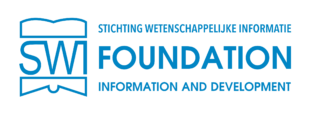Welcome to
the Stichting Wetenschappelijke Informatie (SWI)
Foundation for Research and Development
Center for Development in Suriname
OUR MISSION
Guidance to Development
“To evaluate critically and guide effectively development
at all levels and various pheres of humans and nature”.

SWI is A center
of excellence for Development in Suriname
with a regional and international scope
on development problems.
It focuses on cultivating,
educating and producing critical thinking,
as well as producing knowledge
for development.
©Copyrights: SWI FOUNDATION SURINAME. Paramaribo, May 01, 2021. All Rights Reserved
Natievorming en natiecreatie in Suriname
Jack Menke (Editor)
2008
ISBN 99914-620-3-1
Deze publicatie maakt vanuit nieuwe perspectieven analyses van de wijze waarop de diverse etnische groepen en traditionele volken zijn opgenomen in complexe processen van integratie. Deze processen worden vanuit twee invalshoeken geanalyseerd: als natievormingsproces vanuit het perspectief van de staat; en als natiecreatie vanuit het perspectief van de samenleving. Natievorming wordt vanuit de staat geinitieerd om de samenleving van boven af in te richten naar een ontwerp dat uitgaat van het eurocentrisch ideaal van een uniforme cultuur. Natiecreatie, daarentegen, komt primair voort uit de inspiraties en creativiteit van de samenleving en verwijst naar de inspanningen om door integratie van (culturele) groepen een natie te creëren gebaseerd op solidariteit en een harmonische afstemming tussen de verschillende culturen.
AID AND DEPENDENCE
The Case of Suriname.
A study in Bilateral Aid Relations
(Baijah Mhango 1984)
AID AND DEPENDENCE is illustrative for economic relations between Metropolitan and peripheral economies in the world.The author makes an in-depth study of the development cooperation between Suriname and Holland. The analysis focuses on the 3.5 billion Dutch guilders of development aid – the golden handshake, that was agreed upon Suriname’s independence in 1975. The book examines the backgrounds of Dutch development aid, the relations between the Holland and Suriname, the multi-annual development plans, the organizational and institutional aspects, the sectoral developments and the macro-economic context. Mhango explains why the development goals were not achieved: While the dependence on foreign countries remained, the Surinamese economy did not achieve sustainability. Suriname’s initial conditions were unfavorable from the start. The author concludes that the Dutch development aid had a negative impact, rather than contributing to self-reliance of Surinamese economy.

